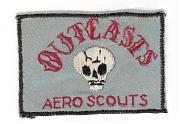Agree with Steve - DoD cannot even be audited at this point, so the comparison can (and has been widely) made that it's just throwing more money into a very deep if not bottomless pit.
Personally, I like simplicity and easy maintenance in equipment. I see millions of lines of code in new procurement programs and I shudder. I hear first hand reports of the difficulty in sustaining qualified people on some of the ABCS equipment and I get worried. I see hundreds of private contractors working as maintenance techs on certain pieces of equipment, and I start to wonder if we can sustain a fighting force in a high intensity war. I look at the time it takes to bring new equipment into the line units (especially major end items), and the lack of facilities and factories that actually create the equipment, and I understand why we have backlogs at the few depots that are up and running.
But the bottom line is that if I was to wargame the United States, the absolute last thing I'd do would be to fight us conventionally. You'd have to be a stone cold moron to do that when there is a proven record of success or at least a draw when someone fights the US in a counterinsurgency since the 1960's.
But again, what is a peer competitor?










Bookmarks